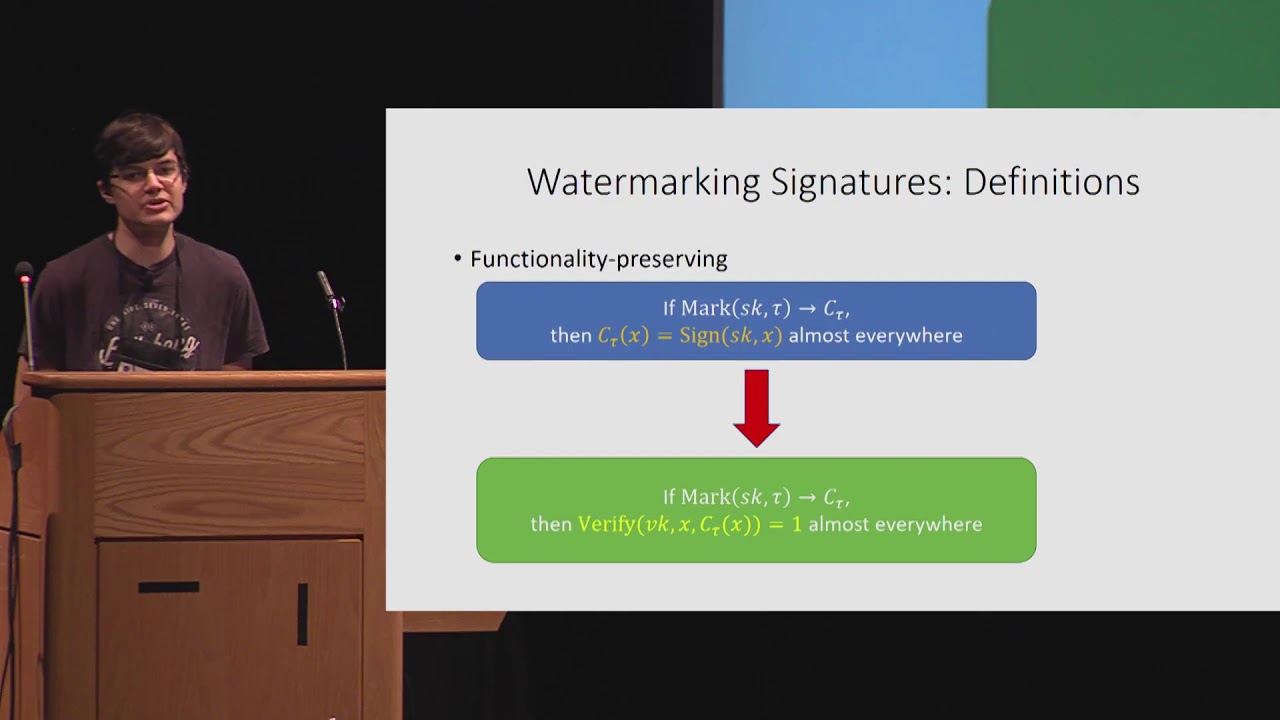Welcome to the resource topic for 2019/628
Title:
Watermarking Public-Key Cryptographic Primitives
Authors: Rishab Goyal, Sam Kim, Nathan Manohar, Brent Waters, David J. Wu
Abstract:A software watermarking scheme enables users to embed a message or mark within a program while preserving its functionality. Moreover, it is difficult for an adversary to remove a watermark from a marked program without corrupting its behavior. Existing constructions of software watermarking from standard assumptions have focused exclusively on watermarking pseudorandom functions (PRFs). In this work, we study watermarking public-key primitives such as the signing key of a digital signature scheme or the decryption key of a public-key (predicate) encryption scheme. While watermarking public-key primitives might seem more challenging than watermarking PRFs, we show how to construct watermarkable variants of these notions while only relying on standard, and oftentimes, minimal, assumptions. Our watermarkable signature scheme relies only on the minimal assumption that one-way functions exist and satisfies ideal properties such as public marking, public mark-extraction, and full collusion resistance. Our watermarkable public-key encryption schemes are built using techniques developed for the closely-related problem of traitor tracing. Notably, we obtain fully collusion resistant watermarkable attribute-based encryption in the private-key setting from the standard learning with errors assumption and a bounded collusion resistant watermarkable predicate encryption scheme with public mark-extraction and public marking from the minimal assumption that public-key encryption exists.
ePrint: https://eprint.iacr.org/2019/628
Talk: https://www.youtube.com/watch?v=c9t7Wq0VqRY
See all topics related to this paper.
Feel free to post resources that are related to this paper below.
Example resources include: implementations, explanation materials, talks, slides, links to previous discussions on other websites.
For more information, see the rules for Resource Topics .
